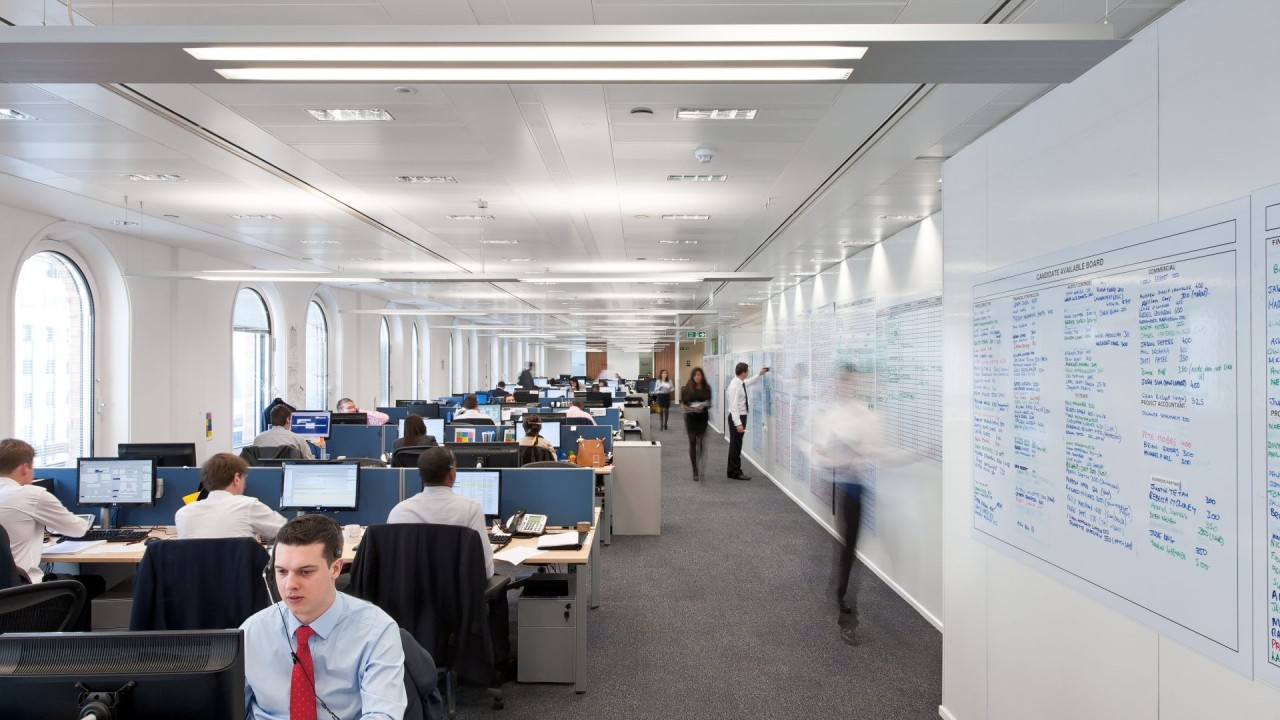Why don’t you want to come into the office?

Have you taken a second to take a step back and think about what your office setup looks like and why it matters more than you think?
Let me share a personal story. In my previous job, we all sat in a bullpen—desks packed tightly together, no partitions, no privacy. Clients could hear every background conversation during calls and often assumed I was working at a call center. Stephanie and I sat so close together that we had to cover one side of our ears when we were on calls with candidates or clients. It was nearly impossible to have a private conversation without every person in the office listening. We had to go into the boardroom to take any private or confidential calls, which was counterproductive. I actually enjoy being in the office and value face-to-face collaboration, but that particular setup made it almost impossible to focus or have a confidential conversation. It wasn’t the “being in the office” that was the problem—it was how the office was designed.
Ironically, we saw our production nearly double from our sales team once everyone was allowed to work remotely during and after COVID. I loved being remote previously, but when we launched Arkansas Talent Group – now I love being in the office. Why is that? It’s the setup.
I think companies are too focused on “ping-pong tables, nap pods, and innovative ideas” than they are what matters to the individual’s working space. We spend more time on our desk than anywhere else in the week!
I know collaboration is the buzzword these days, and “open working concepts” are everywhere. But the reality is, open offices often don’t deliver on their promise. Studies have shown that open layouts can actually discourage communication and collaboration because people feel exposed and lack confidentiality. In fact, research involving over 42,000 workers found that those in open offices were less satisfied with their ability to interact easily and felt more distracted, stressed, and dissatisfied with their surroundings compared to those in more private setups.
The lack of privacy isn’t just an inconvenience—it can lead to real anxiety about being in the office. When every conversation can be overheard and there’s nowhere to retreat for focused work or sensitive discussions, it’s no wonder some people prefer the autonomy and comfort of remote work. It’s not about avoiding work; it’s about creating an environment where people can actually do their best work.
If we want people to come into the office, maybe it’s time to rethink the space itself. Privacy, focus, and comfort aren’t luxuries—they’re necessities for productivity and well-being.
What has your office setup been like? Have you found that your environment helps or hinders your best work, and how did COVID affect it?
Chris Chunn, Partner/Co-Founder, Arkansas Talent Group
Read more posts from Arkansas Talent Group
AY’s Intriguing Women 2025: Stephanie Shine
AY Magazine, October 2025Originally posted onIf fortune favors the bold, Stephanie Shine might be on fortune’s VIP list. While working at a large recruiting firm, Shine and business partner Chris Chunn hatched a plan to blaze their own path. Standing in the way,...
Inviting Arkansas: Fun & Philanthropy – A Night in Vegas Returns
Inviting Arkansas, September 2025Originally posted onThe dice are ready, the music is set, and the spotlight is on one woman who has turned her passion for service into one of the year’s most dazzling fundraisers. When A Night in Vegas returns to The Hall later this...
Arkansas Money & Politics – The House Always Wins: A Night in Vegas
Arkansas Money & Politics, August 2025Originally posted on“I think what’s different about A Night in Vegas is it’s more about the glitz and the glam and having fun with your friends,” said Stephanie Shine, co-founder of Arkansas Talent Group and chairperson for...
